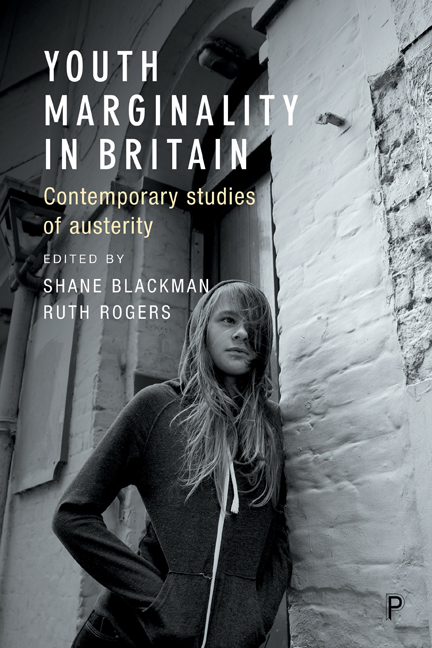three - Youth poverty and social exclusion in the UK
Published online by Cambridge University Press: 05 April 2022
Summary
Introduction
Drawing on analysis of the 2012 UK Poverty and Social Exclusion Survey (2012 PSE-UK; Gordon, 2016), this chapter examines the nature, extent and distribution of vulnerability to poverty and social exclusion among young adults (18–29-year-olds) living in private households in the UK. The 2012 PSE-UK study is the largest and most comprehensive survey on poverty ever conducted in the UK and updates earlier comparable survey work conducted in 1999. These data can therefore advance our understanding of youth marginality in important ways.
First, it is now well established that household income provides only a partial picture of people's actual command over resources and is wholly uninformative about their actual living conditions and living standards. This emphasises the need to supplement income data with direct observation of living standards in order to examine the relationship between income and deprivation. This is especially important for young adults, given the assumptions typically made in poverty research about the equitable sharing of incomes within households. As we shall see, these assumptions are rather questionable for young adults, given the substantial variation in vulnerability to deprivation within households that this study reveals.
Second, the PSE methodology facilitates meaningful comparisons over time and specifically with the 1999 PSE study. By comparing data for 1999 and 2012, this chapter therefore also examines how the nature, extent and distribution of youth poverty have changed over this period. In doing so, this chapter seeks to examine how the profile of vulnerability to youth disadvantage changes over time and the extent to which variations may be explained by wider changes in the context of youth transitions – most notably as a result of the 2008 economic crisis and subsequent austerity policies that have been pursued in the UK and elsewhere. This chapter reveals the growth in social and material deprivation among UK youth over this period, and should be a stimulus to more concerted policy action to tackle youth poverty and exclusion.
Recession, austerity and the situation of young adults
For the most part, youth interventions have focused on tackling social exclusion rather than poverty, and on promoting a model of inclusion through paid work and associated activation approaches.
- Type
- Chapter
- Information
- Youth Marginality in BritainContemporary Studies of Austerity, pp. 43 - 64Publisher: Bristol University PressPrint publication year: 2017



